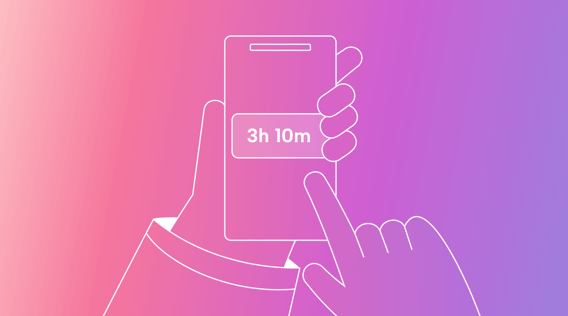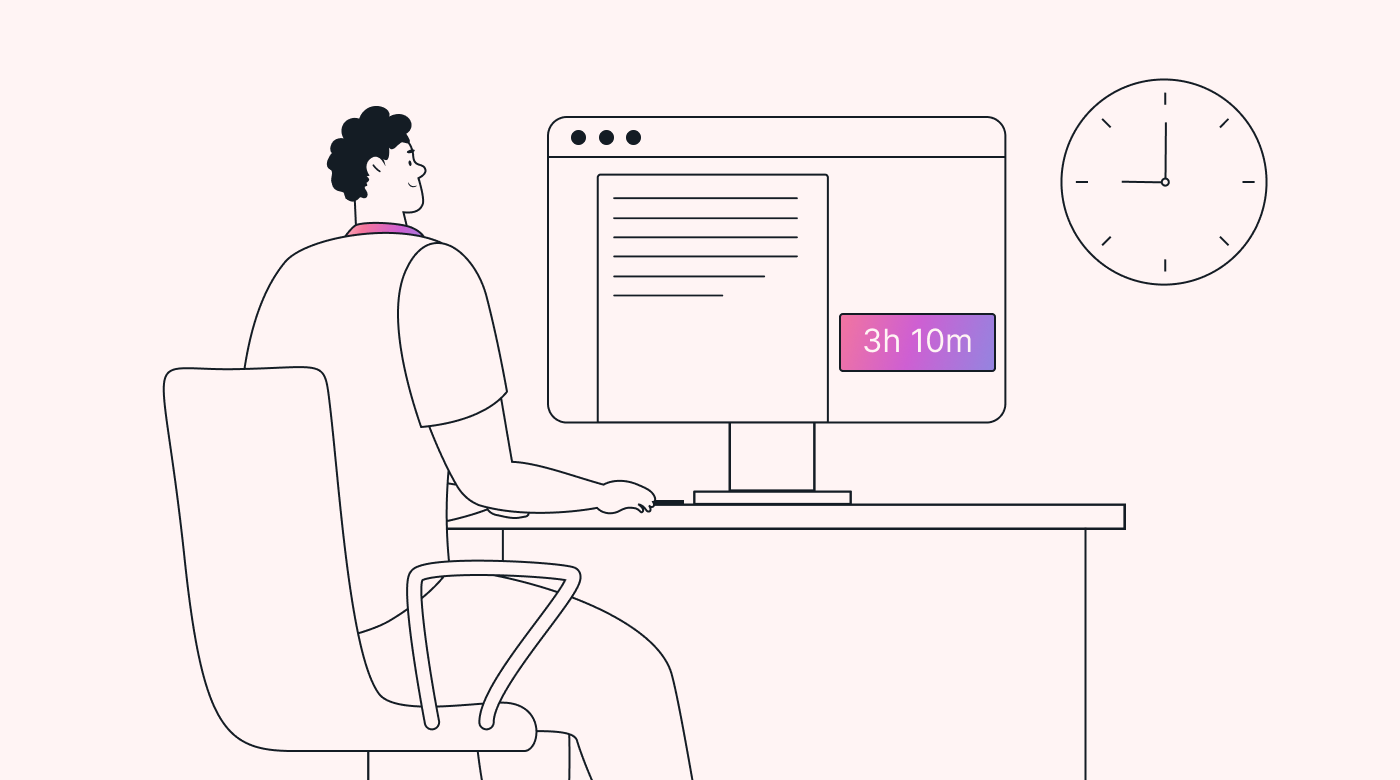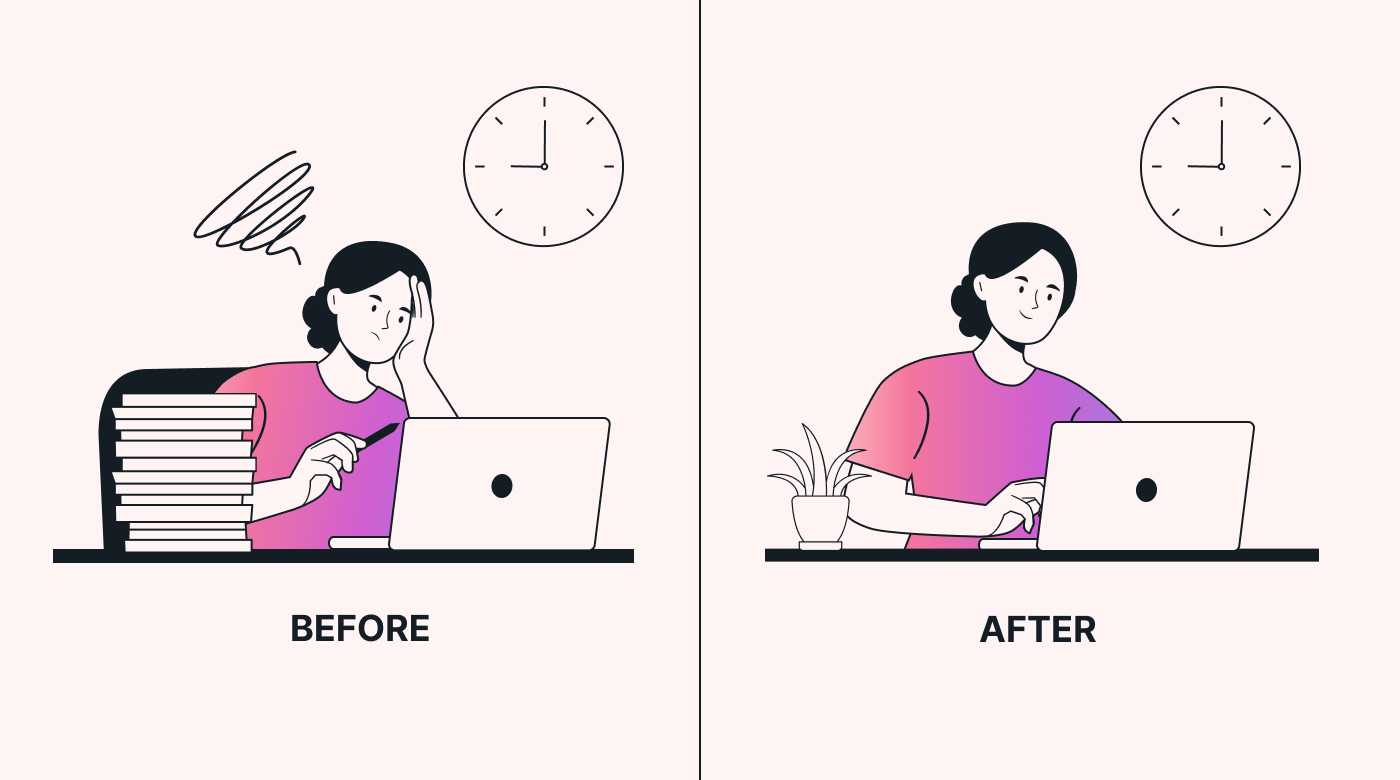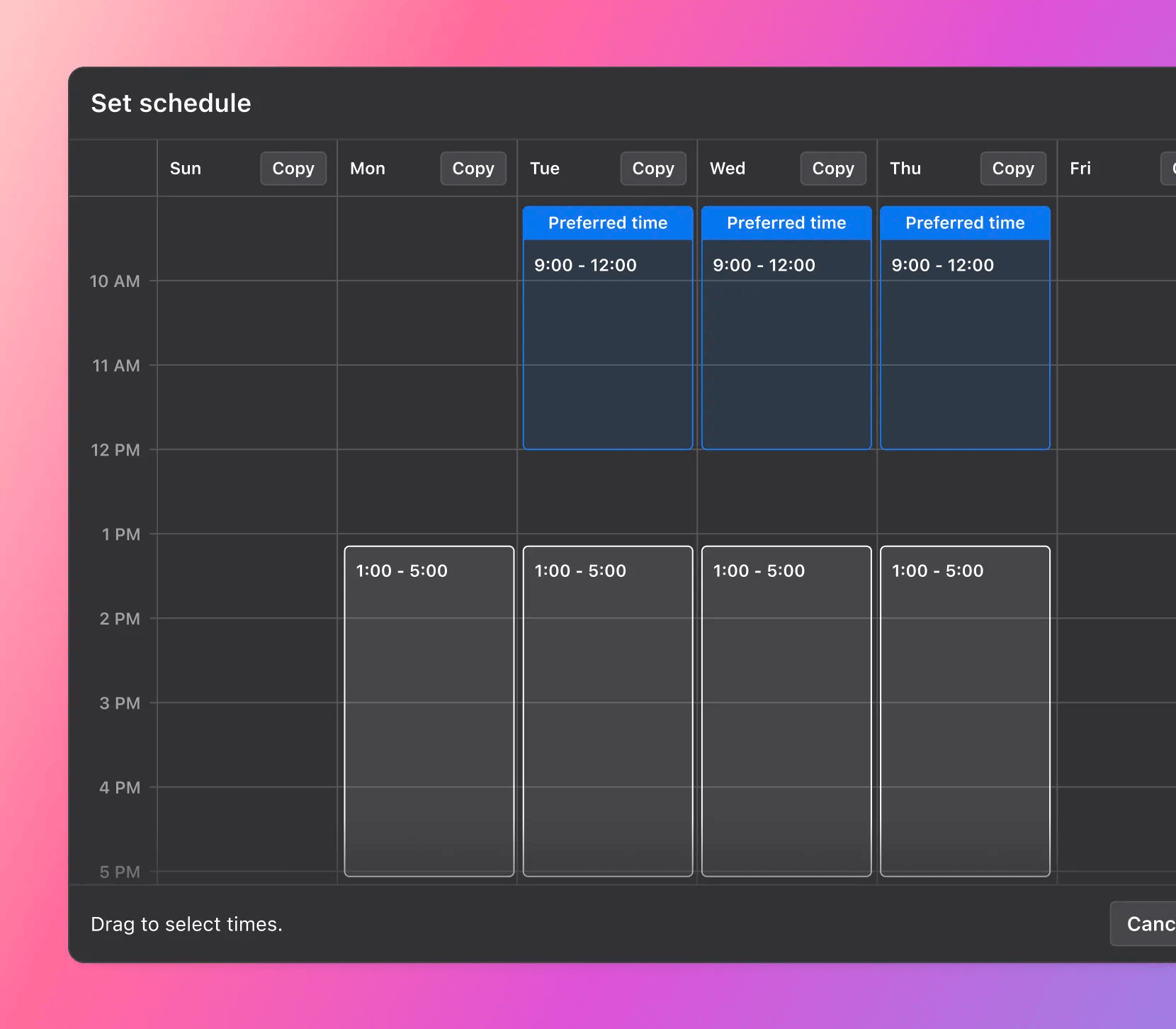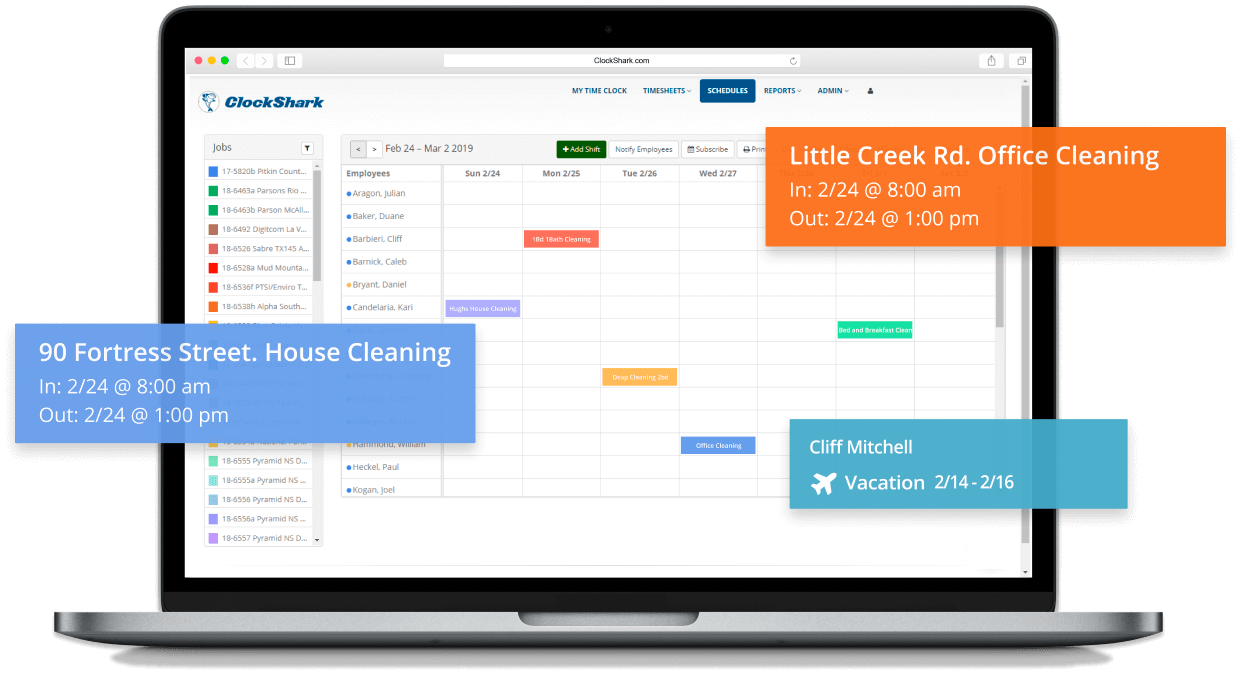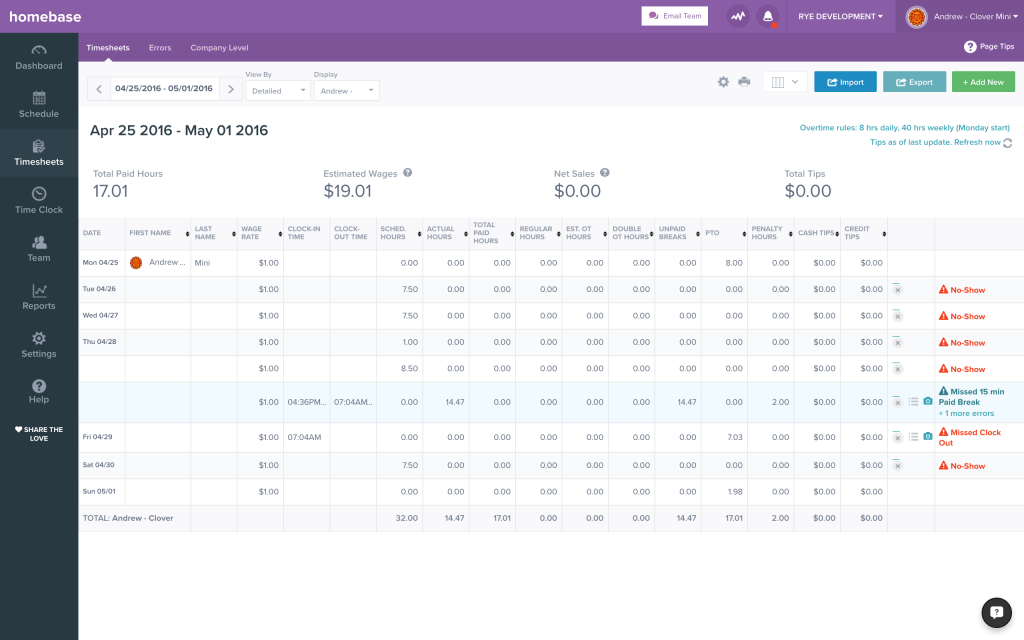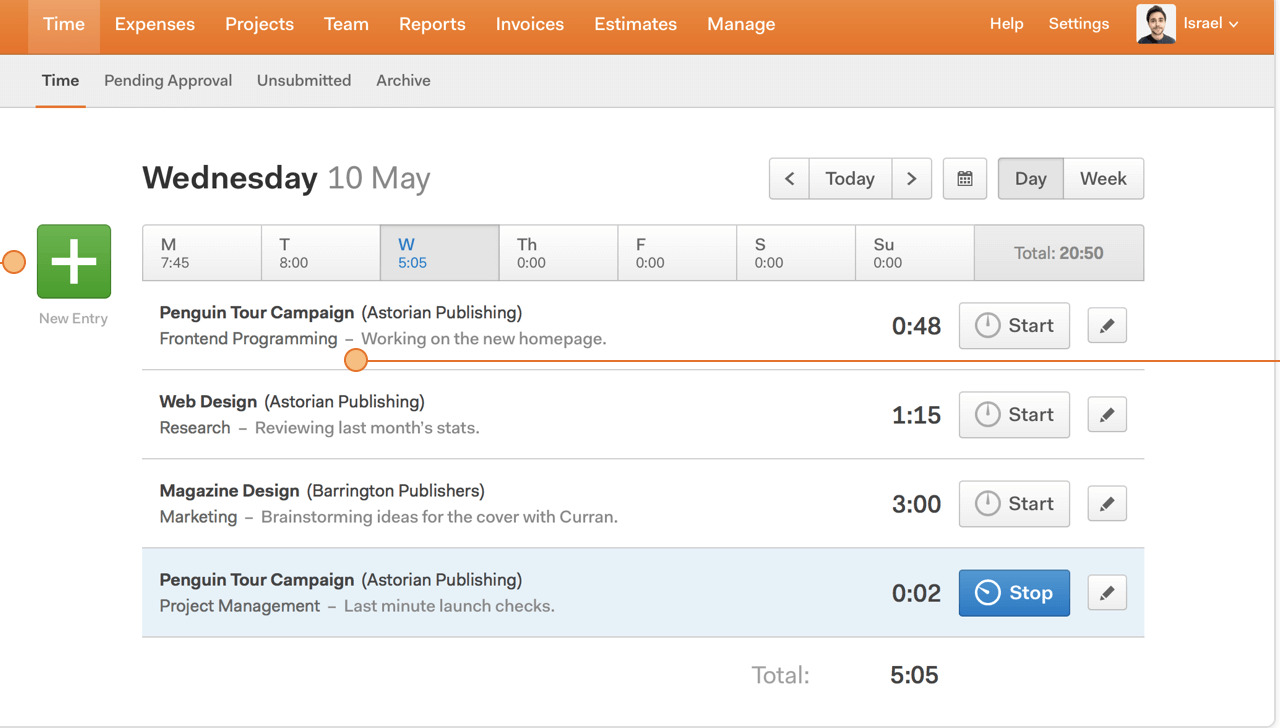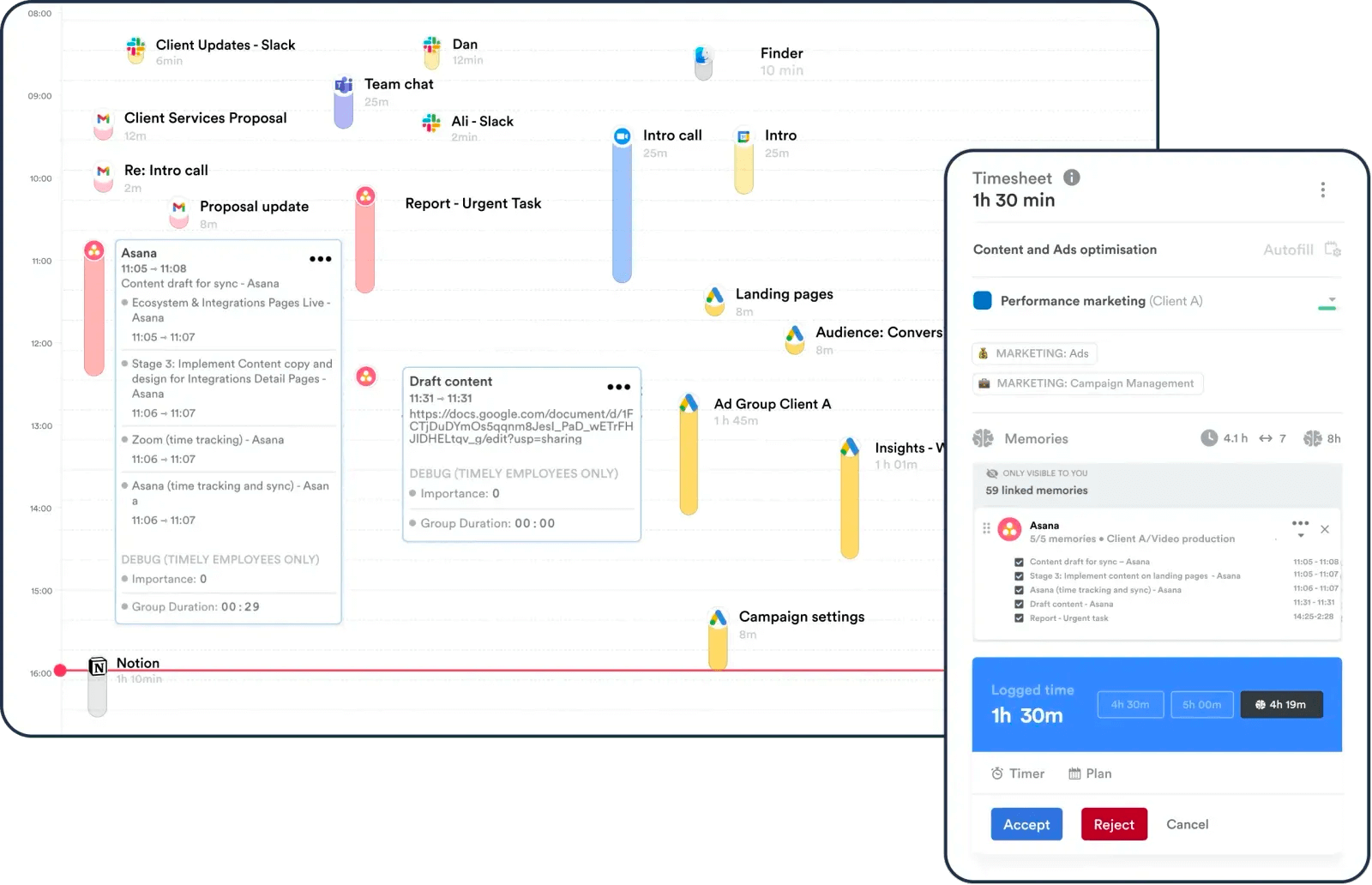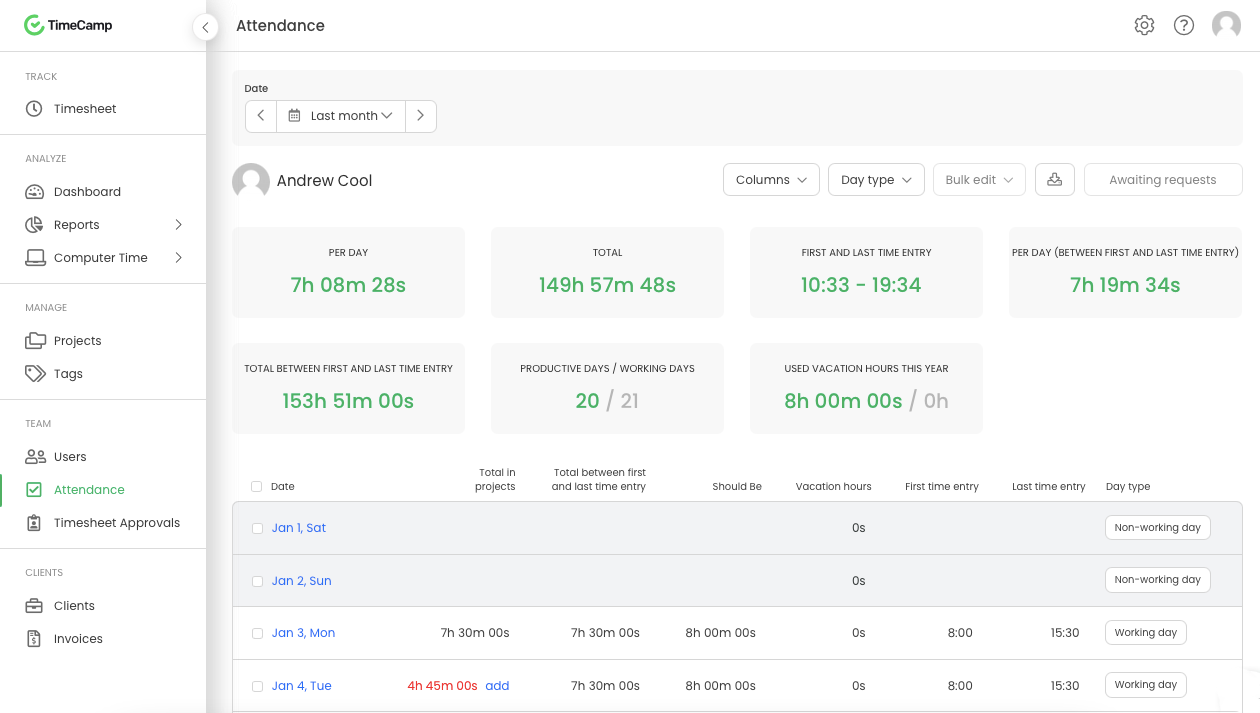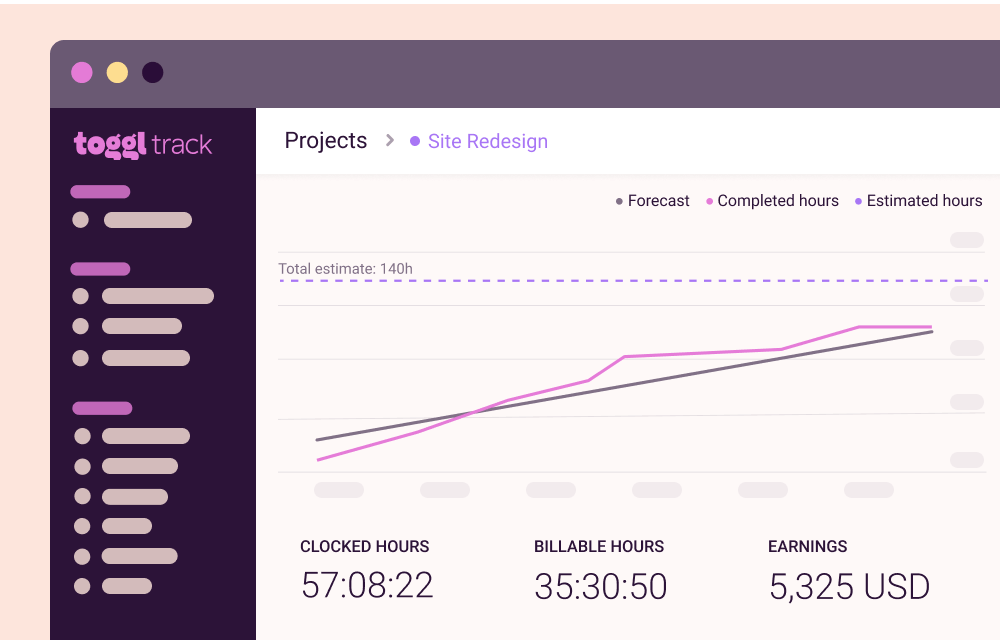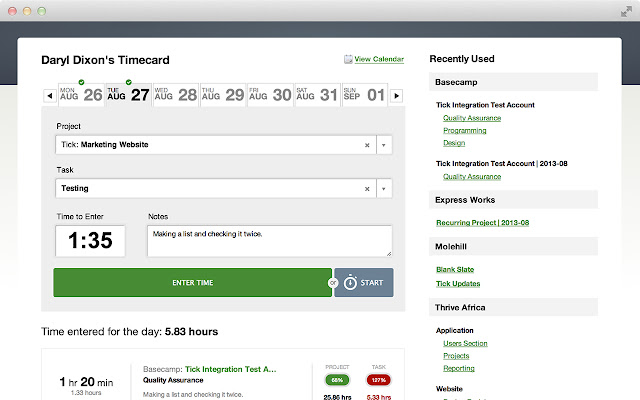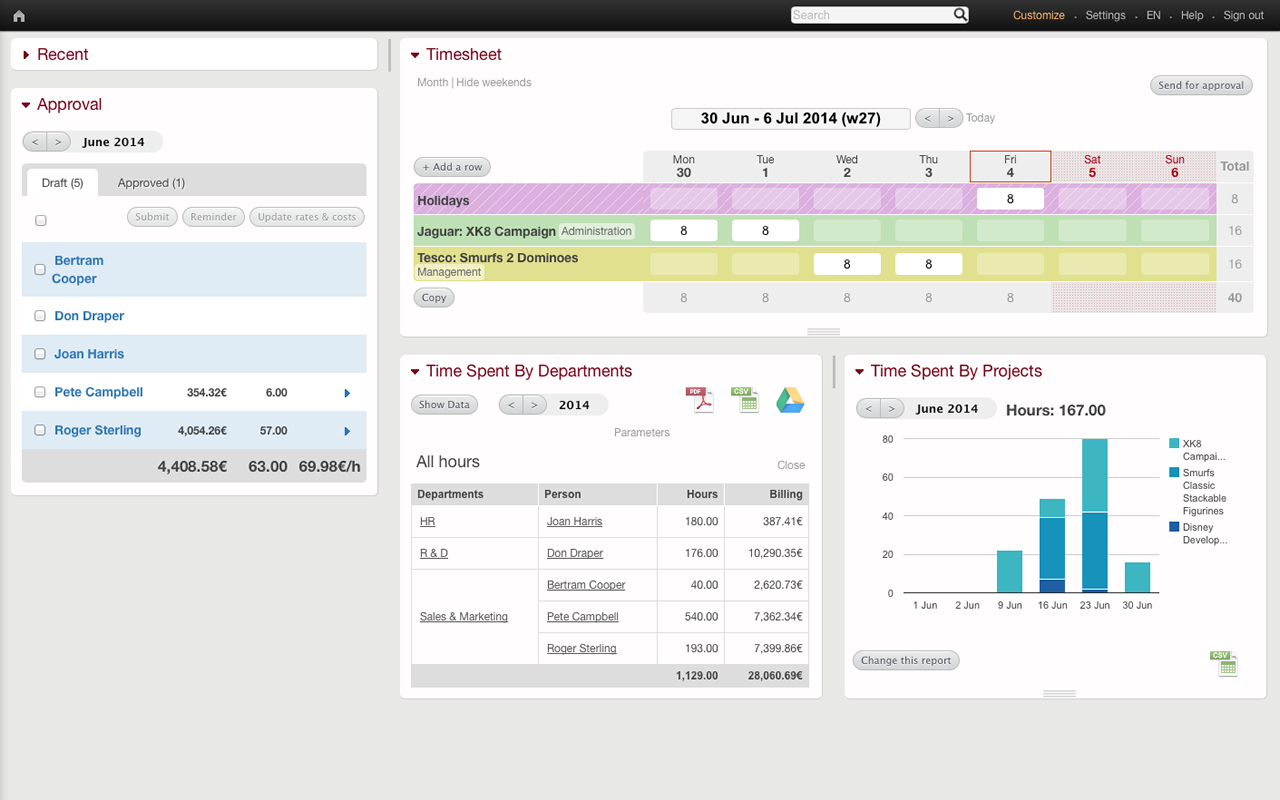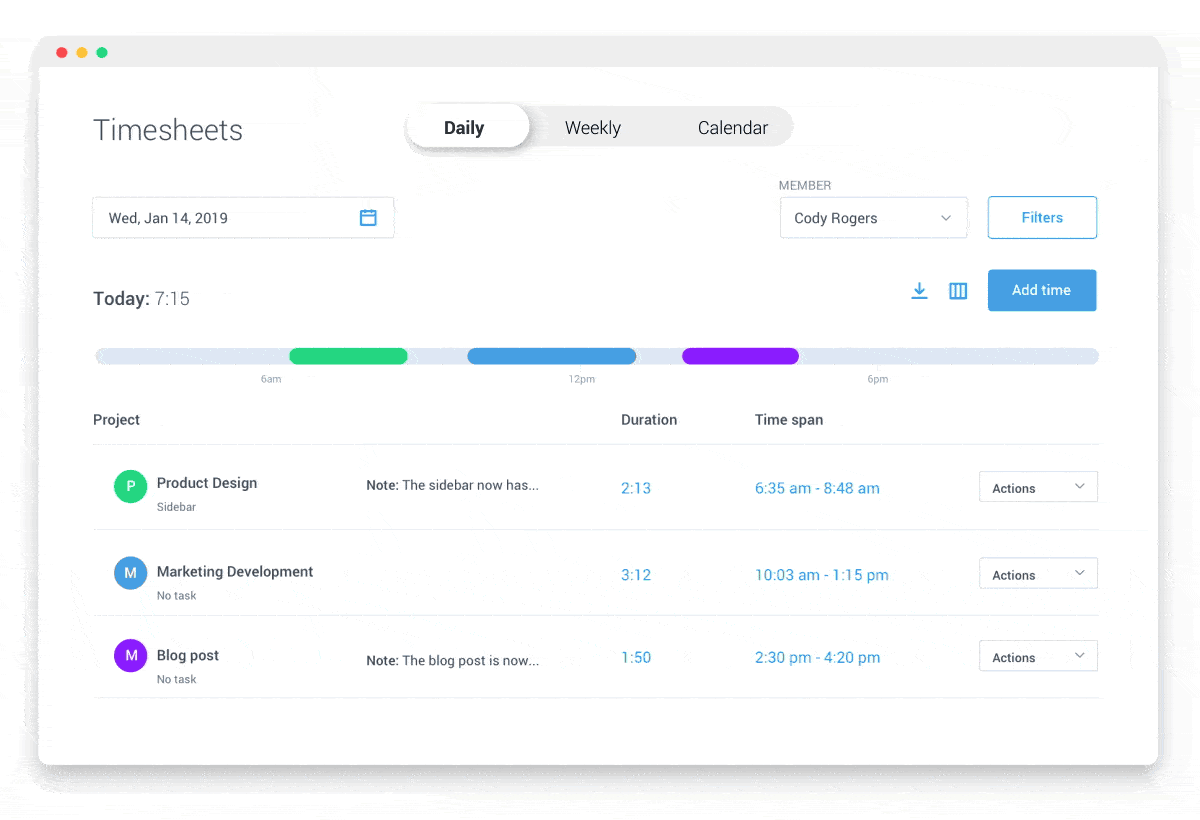Employers need to make their employee experience as frictionless as possible.
There is so much for employees to focus on beyond their work: administrative tasks, office politics, new policies, and more.
As their attention shifts to these distractions, employees may be spending less time on what really matters —their work.
Automating basic administrative tasks with an employee time tracking app can save employees time and remove a manual task from their days.
In this article, we’ll cover the following:
- What is an employee time tracking app?
- Why should you use an employee time tracking app?
- What are the 10 best employee time tracking apps to choose from?
- How do the best employee time tracking apps work?
- What are some unique features of the top employee time tracking apps?
Before we get to the good stuff, let’s define an employee time tracking app so we are all on the same page.
What is an employee time tracking app?
An employee time tracking app is a program that employees can use to keep track of how long they spend on certain tasks.
Before you begin to think that this is all about “big brother” watching over employees’ every move, consider the benefit that employees can extract from it.
Sure, time tracking apps cut down on time theft, but many have advanced features such as:
- Team performance data
- Budget tracking
- Resource scheduling
- Goal setting
- Detailed reports
An employee time tracking app makes it easier to keep track of billable hours and help the employee stay on track.
It could even make the employee more productive by reminding them of the amount of time they are spending on a certain task.
A wide variety of businesses —including those in client services (like an agency) or those simply focused on optimizing their workforce —use employee time tracking apps.
The apps enable business leaders to make the necessary changes to their workforce to grow the business carefully with employee capacity numbers in mind.
They provide visibility over how a workforce spends its time. As time is tracked each day, you can begin to see trends and extract insights from the data.
This can be valuable for organizations that are planning for aggressive growth or ones that are wondering why they aren’t hitting their goals.
Instead of manually inputting time entries, various time tracking tools can keep in-person and remote teams on track while documenting employee hours and examining overall productivity.
Now that you know what an employee time tracking app does, let’s consider why it might make sense to integrate one into your daily life.
Why should you get an employee time tracking app?
Take a moment to objectively analyze your daily habits as they stand today.
Consider the following:
- Are you spending time on your most important tasks?
- Are you making progress each day?
- Do you feel organized in how you allocate time and energy each day?
- Would you benefit from a different time management strategy in your day-to-day life?
- Are you spending your time in a way that gets you closer to your perfect daily schedule?
As you reflect on those questions, you will begin to understand whether you should adopt an employee time tracking app.
If you need more clarity on your answers or are mostly answering “No,” you should consider testing an employee time tracking app.
The app will enable you to objectively look at how you spend your time each day and decide whether or not improvements need to be made.
If you implement an employee time tracking app, you can begin to organize your day in a way that prioritizes your most important work.
An employee time tracking app will aid you in staying on top of your current workload while automating different aspects of your day.
This could motivate you, save you time, and enhance your overall productivity for the day.
Best of all, it could cut out some of the administrative tasks that you’re responsible for each day, too. It is a small investment, but it will pay off if you set it up and use it correctly.
However, there are so many employee time tracking apps in the market. Which one is right for you and the tasks that you are completing each day?
Let’s take a look at the breakdown of the top employee time tracking apps to consider using this year.
The top 10 employee time tracking apps to use in 2023
There are so many different employee time tracking apps in the market. How do you know which one is right for you?
Here is a list of the 10 best employee time tracking apps that you need to review.
1. Motion
Motion is a productivity solution that mixes automation and AI to more intelligently plan and optimize your day.
The platform functions as an employee time tracking app by uniquely keeping track of your meetings and tasks. With Motion, you can optimize your day to make sure you accomplish your objectives, while still having time to yourself to get things done.
Some of Motion’s unique features include calendar syncing, AI project management, recurring task management, meeting schedulers that pick the ideal time and limits meetings, hundreds of integrations, and so much more.
Try Motion’s free trial and streamline your time tracking today.
2. Clockshark
Clockshark calls itself “the industries’ #1 timesheet app” and positions the company as a solution for field service and construction professionals.
The product is an app that can be used for employee time tracking — both in the field and also in the office. If you are billing for different jobs, you can easily toggle to different tasks with different labor costs associated and record them in real-time.
Also, if you have a crew who are all working on the same project, you can take advantage of Clockshark’s Crew Clock to clock everyone in at once. By integrating with QuickBooks, ADP, or Xero, you can send employee data directly to your payroll and process payments quicker.
3. Homebase
Homebase is perfect for small businesses looking to manage their employees’ schedules and time clocks all in one place.
Homebase offers an intuitive time clock app for employees, GPS-enabled time tracking, rule setting for compliance, performance tracking, labor cost controls, and integrations with popular payroll partners.
You can track your hours in just a few clicks, making it easy for new employees to quickly grasp the software and begin tracking their time effortlessly.
4. Harvest
Harvest is not just an employee time tracking app but also an expense tracking app as well. Users can start and stop tracking in just one click within a desktop, mobile, and web browser.
The interface is clean, simple, and easy-to-use. You input the task, write a description, and click the “Start” button. Then, the app tracks your time on a task by task basis. You can toggle between a day and week view to review your performance for a chosen time.
Users can submit their timesheets to an administration for review. The “Pending Approval” tab is where users can check their status. Overall, this is a simple platform that is intuitive with only a limited amount of essential features.
5. Timely
Timely is an AI-powered automatic time tracker that records employee task performance across various integrated apps and consolidates the information into accurate timesheets.
The magic of Timely is that you don’t have to worry about manually timing your tasks. You can track your tasks in the background. This enables you to keep your focus on your task without having to worry about breaking your flow to record or stop your time.
You can also have visibility over project health with customized reports. This is helpful for administrators who need oversight over their teams.
6. TimeCamp
TimeCamp is a cloud-based employee time tracking app that enables you to take control of your productivity, budgeting, timesheet administration, and more.
Businesses can track their employee times either automatically or manually to make sure everything is recorded with accuracy. All tasks are shown in a timesheet, graphical, or calendar view for easy insight into employee performance.
Some of the most popular integrations with TimeCamp include Trello, Google Calendar, iCal, Asana, monday.com, and more.
7. Toggl
Toggl is an employee time tracking app specifically for designers and design-related projects. The platform offers simple one-click tracking that users can initiate from other tools such as Google Suite or Asana.
Businesses choose to use Toggl to more effectively allocate resources, monitor projects that are creeping in score, and scale staff accordingly. Administrators can filter and export data by user or project, providing complete visibility over their operations.
Over 100+ apps integrate with Toggle via browser extensions, making it easy to connect it to your tech stack and begin using right away.
8. Tick
Tick positions its product as “straight-forward time tracking.” You won’t find a bunch of useless features. Instead, Tick provides users with the core essentials in an intuitive window.
The timecard is simple with the ability to mark the project, tasks, and any notes. Then, you can click “Start” or “Enter Time” to begin tracking. Once you hit start, Tick’s running timers will count up as your time increases.
One of the coolest features Tick offers is the instant budget feedback in the timecard. It shows how much of the project is complete and by what percent the specific task went over or under.
This enables businesses to keep their employees on track across multiple teams and departments.
9. BeeBole
BeeBole offers a variety of employee time tracking features including the ability to track time, attendance, project performance, and more. You can create customizable reports to keep projects on track and under budget.
In addition, employees can clock in and out from their desktop or mobile device to keep track of all their hours worked, breaks, and even days off. With this data, management can review employee time reports, filter by billable/non-billable hours, and more.
There is also a built-in approval workflow which will automatically send an hourly overage request to an administrator for approval. Collectively, these features make BeeBole a useful solution for mid-sized, growing companies preparing to scale.
10. ClickUp
ClickUp is a project management platform that can also work as an employee time tracking app. With Clickup, you can track time, establish estimates, draft notes, and formulate all the data into relevant reports for your business.
ClickUp offers a free Chrome extension making it even easier to track your time without disrupting your work. You will even have ClickUp’s global timer at your fingertips, which will enable you to adjust and add time to tasks or create new entries within a specific date range.
Some of the core ClickUp time tracking features include: notes functionality, billable time denotion, filtering, edit time, labels, sorting, and rollups (viewing total time spent on a task).
In addition, you can sync your time from other time tracking apps (like Toggle, Clockify, Harvest, and more) to centralize your efforts into one cohesive dashboard.
Concentrate on your work instead of not admin tasks
Businesses are always looking for ways to cut costs and grow effectively.
With time tracking apps, you can work more efficiently and analyze how you are spending your time. Plus, businesses can evaluate their workforce and make more educated decisions about how to scale their resources.
Most importantly, though, time tracking apps can remove some of the manual administrative tasks out of the employee’s to-do-list.
Build the perfect to-do list and intelligently plan your day with Motion. Try it out now for free and increase your productivity today.

